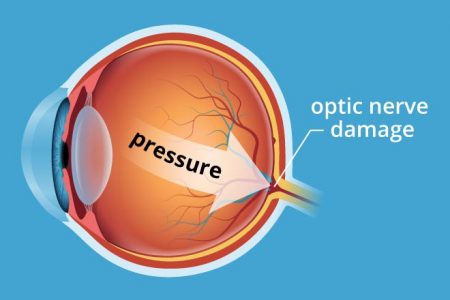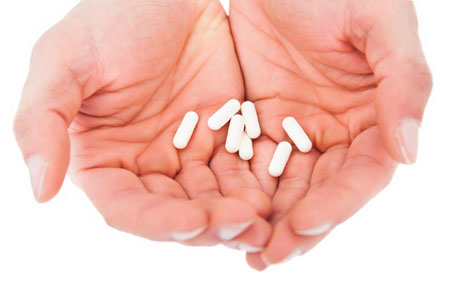Vitamin B6 Plus Lithium Helps Ease Mania Symptoms in Patients With Bipolar Disorder
Daily vitamin B6 (40mg/day), but not B1 (100mg/day), as an adjunctive therapy to lithium was associated with the improvement of mood symptoms in hospitalized patients with bipolar disorder experiencing a manic episode, according to a study published in the Journal of Affective Disorders 2024; 345 103-111: Zandifar et al.
Vitamin Methyl B12 Improved Autism Symptoms in Randomized, Placebo-Controlled Study
In a 2016 article in the Journal of the American Academy of Child and Adolescent Psychiatry, Robert L. Hendren and colleagues described an 8-week study in which the vitamin methyl B12 improved symptoms of autism spectrum disorders in children.
Fifty-seven children were randomized to receive either 75??g/kg of methyl B12 injected under the skin every three days or saline injections as a placebo instead. Methyl B12 improved the children’s autism symptoms compared to placebo. The improvements correlated with increases in levels of the amino acid methionine in the blood and improvements in cellular methylation capacity. Children with autism spectrum disorders have reduced ability to methylate (i.e. add methyl groups to) DNA. The methylation process helps convert the toxic amino acid homocysteine into beneficial methionine. The children who received methyl B12 showed a reduction in homocysteine and a better ratio of methionine to homocysteine.
Homocysteine is bad for the heart, for cognition, and for fetal development, while methionine can help improve depression and is important to many cellular reactions. Converting homocysteine to methionine requires vitamin B12 and folate, another B vitamin found in foods such as green vegetables and beans.
Taking folate supplements can help make antidepressants more effective by aiding the methylation process. However, some people have a common variation in the MTHFR gene that makes it difficult for the body to make use of folate. These people would need to take the nutritional supplement L-methylfolate instead of regular folate to help in the conversion of homocysteine to s-adenosylmethionine (SAMe, which acts as an antidepressant).
In Mice, Vitamin B3 (Niacin) Prevents Glaucoma
A study published in the journal Science in 2017 reports that adding vitamin B3 to the drinking water of mice prevented them from developing glaucoma. Glaucoma is an age-related condition in which pressure inside the eye damages retinal ganglion cells, the neuronal cells that connect the eye to the brain.
Age contributes both to the buildup of pressure within the eye and to the vulnerability of the neuronal cells to damage. Vitamin B3 seemed to correct the latter problem.
The study by Pete A. Williams and colleagues compared mice with an inherited risk of glaucoma to control mice. Williams and colleagues found that a molecule called NAD that keeps cells functioning normally declined with age, reducing the reliability of the neurons’ energy metabolism.
Vitamin B3 boosted the metabolic reliability of the aging neuronal cells. This helped the cells resist damage from mounting pressure in the eye.
Williams and colleagues also found that a single application of gene therapy with the gene NMNAT1 also prevented glaucoma in the mice. NMNAT1 is the gene for an enzyme that makes NAD from vitamin B3. Gene therapy via an injection in the eye has been approved to treat some rare human eye disorders.
The researchers hope to eventually test vitamin B3 treatment in people with glaucoma and other neurodegenerative disorders.
Editor’s Note: Vitamin B3 may be beneficial for other conditions as well. High-dose niacin (500 mg and up) is a prescription treatment for high cholesterol, and especially the combination of high cholesterol and high triglycerides (blood fats). Niacin may also prevent hardening of the arteries and second heart attacks in men with heart or circulatory problems, and improve diabetes (type 1 and 2). There is some evidence that vitamin B3 can also improve symptoms of osteoarthritis, such as joint stiffness, pain, and swelling. In addition, people who consume more niacin have a lower risk of Alzheimer’s disease, though it is not clear that taking niacin supplements can prevent the illness.
Vegan Diet Can Lead to Vitamin B12 Deficiency
Vitamin B12 deficiency is a risk associated with a vegan diet. B12 deficiency can lead to depression, anemia, and even irreversible neuron damage, according to researcher Drew Ramsey, who spoke on the topic at the 2016 meeting of the American Psychiatric Association.
A study of vegans showed that 52% were deficient in vitamin B12, while another 23% had insufficient levels of the vitamin. B12 is found in the highest concentrations in certain seafoods and liver. It is also found in dairy products, eggs, fortified breakfast cereals, and is available in supplement form.
Women who eat a vegan diet while pregnant may not be providing their offspring with enough nutrients, according to researcher Emily Deans, who also spoke at the meeting. A case report on 30 vegan mothers found that 60% of their offspring had developmental delays and 37% showed cerebral atrophy.
Deans said that eating no meat is associated with higher rates of depression, anxiety, and worse quality of life.
Ramsey believes that while the North American diet is probably weighted too heavily toward animal products, seafood remains an important source of B12.
Metabolized Form of B Vitamin Improves Depression in People with MTHFR Deficiency
MTHFR is an enzyme needed for the body to break down vitamin B9, also known as folate or folic acid. It also helps convert the toxic amino acid homocysteine into the antidepressant amino acid s-adenysl-methionine. However, a significant segment of the population (some estimate 40%) have a genetic mutation in the MTHFR gene that interferes with the body’s ability to break down B vitamins and is linked to higher levels of homocysteine. MTHFR mutations are also linked to depression.
A 2016 study by Arnold W. Mech and Andrew Farah in the Journal of Clinical Psychiatry found that treating people with major depression and a MTHFR deficiency using a combination of micronutrients and already-broken-down B vitamins improved their depression and reduced their homocysteine levels compared to placebo.
The study included 330 adult patients with major depression and one of two genetic variants in the MTHFR gene—C677T or A1298C. Of those who received the metabolized vitamins, 82.4% showed reduced homocysteine levels. Those who received placebo showed a small average increase in homocysteine. The vitamin group also saw a large drop in depression symptoms on average after 8 weeks, with 42% achieving full remission. There were no side effects.
These findings suggest that homocysteine levels play a role in depression and that metabolized B vitamins can be an effective treatment for depression, particularly in those with a MTHFR deficiency. A metabolized form of folate that is commercially available is called L-methylfolate.
Thiamine (Vitamin B1) May Increase Effectiveness of Antidepressants
A new study suggests that the nutritional supplement vitamin B1, also known as thiamine, can improve symptoms of depression when taken with an antidepressant. Edith Holsboer-Trachsler and colleagues presented the research from their randomized, double-blind, placebo-controlled study at a recent scientific meeting. In a 12-week study, about 50 adults (averaging 35 years of age) with major depression were prescribed a selective-serotonin reuptake inhibitor (SSRI) antidepressant. In addition, half received thiamine supplements while the other half were given placebos. Starting at six weeks, those receiving thiamine with their antidepressant showed more improvement in their depressive symptoms than those receiving the antidepressant alone.
Thiamine is an essential nutrient for humans. It is found in foods such as yeast, pork, cereal grains, and certain vegetables. Thiamine deficiency has been linked to irritability and symptoms of depression, while thiamine supplementation can improve mood and reduce feelings of stress. No side effects were reported in the study.
Holsboer-Trachsler and colleagues hope that thiamine supplementation may help patients adhere to their antidepressant regimens by decreasing the time it takes until their moods begin to lift.
Vitamin B6 May Reduce Restless Legs in Patients Taking Antipsychotics
The atypical antipsychotic lurasidone (Latuda) is one of only a few drugs effective at treating bipolar depression. But 5–10% of patients who take lurasidone experience akathisia, or restless legs.
At a recent meeting, psychiatrist Cynthia Turner-Graham told this editor (Robert Post) of her success in treating a patient with lurasidone-related akathisia that had been resistant to all the standard treatments, including dose reduction, anticholinergic drugs, benzodiazepines, beta-blockers, etc. Vitamin B6 at a dose of 600mg twice a day gave the patient complete relief.
Dr. Turner-Graham was kind enough to direct me to a small double-blind study supporting this clinical observation in patients with schizophrenia who experienced akathisia from treatment with antipsychotics. The study by V. Lerner and colleagues was published in the Journal of Clinical Psychiatry in 2004.
Multivitamin and Mineral Preparations for Childhood Bipolar Disorder
 Researcher Charles Popper gave a talk at the 2014 meeting of the American Academy of Child and Adolescent Psychiatry on the benefits of nutritional supplements designed to provide multiple vitamins and minerals to children with bipolar disorder and other dyscontrol syndromes, such as attention deficit hyperactivity disorder (ADHD) and oppositional defiant disorder. Popper reviewed the literature on the substantial incidence of vitamin and mineral deficiencies among these children.
Researcher Charles Popper gave a talk at the 2014 meeting of the American Academy of Child and Adolescent Psychiatry on the benefits of nutritional supplements designed to provide multiple vitamins and minerals to children with bipolar disorder and other dyscontrol syndromes, such as attention deficit hyperactivity disorder (ADHD) and oppositional defiant disorder. Popper reviewed the literature on the substantial incidence of vitamin and mineral deficiencies among these children.
A modicum of data support the effectiveness of supplements for children with these disorders. One of these supplements is called EMPowerPlus and is sold online. It is moderately expensive and must be given under the supervision of a knowledgeable treating physician. While it is relatively safe in medication-free children, Popper says it can exacerbate withdrawal reactions from some psychotropic medications.
In addition, EMPowerPlus greatly increases lithium-related side effects, in patients taking lithium, the dose must be reduced to about one-tenth of a normal dose for those who are adding EMPowerPlus.
Popper and another researcher, Mary Fristad, have both seen excellent responses to this type of supplementation in children with bipolar disorder who have been unresponsive to more traditional drugs.
In another study by Rita Aouad et al., 72.3% of 980 children with a variety of psychiatric diagnoses had insufficient vitamin D levels (values < 30 nanograms/ml) and 26.7% had vitamin D deficiency (values < 20 nanograms/ml). These data support the rationale for vitamin D supplementation, especially in those who have low levels to start with.
Diabetes Drug Metformin May Impair Cognition, But Vitamin B12 May Help
Metformin, one of the most popular drugs to treat type 2 diabetes, interferes with uptake of vitamin B12, which can in turn lead to some neuronal dysfunction resulting in cognitive dysfunction. Several studies have sought to clarify this link, which may affect up to 30% of patients taking the drug.
Most recently, an Australian analysis of 1354 aging patients found that those with type 2 diabetes performed less well on tests of cognitive abilities, and those diabetic patients with low vitamin B12 levels (below 250 pmol/L) scored lower than those diabetic patients with adequate levels.
Because of the malabsorption problem caused by metformin, patients taking the drug may not be able to get enough B12 from a balanced diet alone and may need supplemental B12. Those who follow a vegetarian diet, have had bowel surgery, have certain complications with the stomach, or who take other medications that depress stomach acid may be at special risk.
Physicians should carefully monitor B12 levels in patients taking metformin, particularly those who have been taking the drug for more than 3 years or those who already suffer from some sort of cognitive impairment.
Vitamins for Treatment-Resistant Childhood Bipolar Disorder?

Update (11/1/2010): According to Dr. Charles Popper of Massachusetts General Hospital and McLean Hospital, particular caution should be used when considering the combination of EMPowerplus with psychopharmacological medications. When used alone, the vitamin compound appears to be relatively safe. However, in combination with other drugs, Empowerplus appears to enhance the medications’ effects, both positive and adverse. So use of very low doses of the vitamin compound with gradual increases should be combined with appropriate decreases in doses of other medications.
Researcher Mary Fristad from Ohio State University completed a small, uncontrolled study of a novel treatment approach, the multi-vitamin and mineral preparation labeled EMPowerplus. Initial case reports from other researchers indicated that the compound led to remarkable and sustained effectiveness in children with bipolar disorder who were unresponsive to most other psychopharmacological approaches.
Fristad’s open study included ten children. Participants were slowly titrated to a minimum of 12 capsules/day with a maximum of 15 capsules/day.
Fristad and colleagues saw 37% improvement in depression and 45% improvement in mania in the entire group of patients who began treatment, while in those who completed the study, there was 71% improvement in depression and 58% improvement in mania. Side effects were benign, but the preparation needs to be administered judiciously in conjunction with a physician’s supervision.
Dr. Fristad hopes to conduct further double-blind, placebo-controlled trials of this compound, which also showed promising open results in case studies by Kaplan et al. in 2002 and 2004 and was written about by Charles Popper, a researcher at Massachusetts General Hospital, in 2001.
The EMPowerplus preparation is available at the web site http://truehope.com and costs approximately $100-200 per month, but is not recommended for use without careful supervision by a physician.
EDITOR’S NOTE: Controlled clinical trials to demonstrate efficacy have not yet been undertaken, partly due to lack of support from funding organizations and uncertainty about which of the many ingredients is active. Studies of pharmaceutical agents for treatment-resistant children without a cogent theoretical rationale are rarely a high priority despite the great need for effective treatment approaches.
Nonetheless, given initial promising results of the Fristad group and others, systematic clinical trials of this preparation are now clearly indicated.








